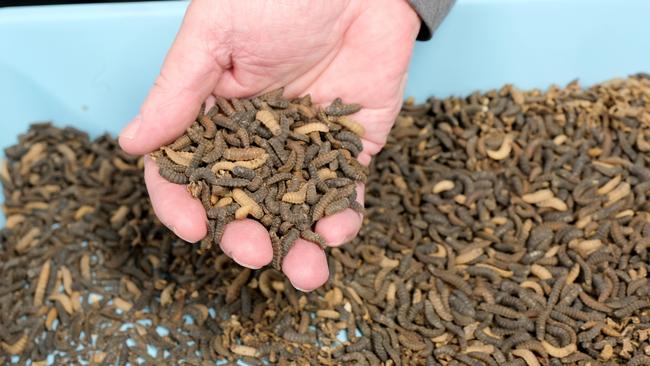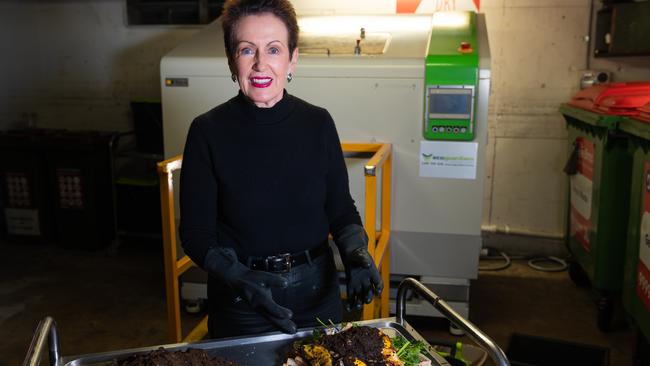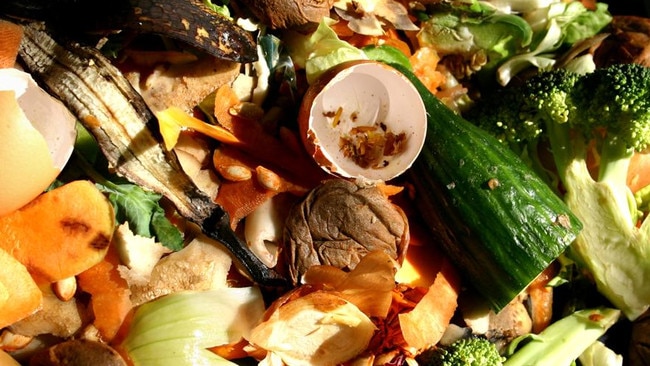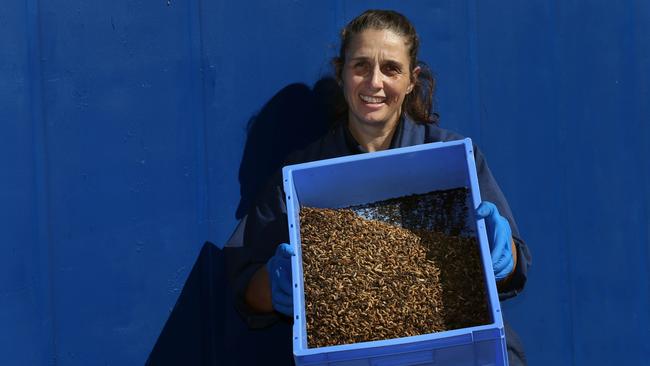City of Sydney: Clover Moore to recruit hungry maggots to wage war on food waste
Sydney could turn to a band of hungry maggots to help clear its rising pile of food waste in a potentially groundbreaking trial.

Central Sydney
Don't miss out on the headlines from Central Sydney. Followed categories will be added to My News.
Sydney could turn to a band of hungry maggots to help clear its rising pile of food waste in a potentially groundbreaking trial.
At City of Sydney’s Monday council meeting, councillors unanimously endorsed Lord Mayor Clover Moore’s mayoral minute for a trial using black soldier fly larvae to help eat their way through the local government area’s food waste.
Black soldier fly larvae consume food scraps, converting them into a protein and fertiliser, on a commercial scale, which can then be used for animal feed and fertiliser.
The City of Sydney produces about 5.5 million kilograms of waste a day, one-third being food waste. Ms Moore said the trial could help the city improve its carbon footprint while being thrifty.
“While the mere mention of maggots may make you squirm, insect farming is a new technique for processing food waste, and I’m excited to see how it could help transform our waste collection in Sydney,” the Lord Mayor said.

“Insect farming is modular, scalable and cost-effective compared with other food organic processing technology, making the cost-per-tonne very competitive – it should also deliver superior environmental benefits, making it an excellent option for us to explore.”
At Monday’s council meeting, CEO Monica Barone revealed the use of larvae was one of three options for food waste, with the others either already in use or exhausted: composting and anaerobic digestion.
“The budget is there to trial this process and it’s one we think may even be slightly cheaper,” she told council.
Ms Barone said at the trial’s conclusion the city hoped to approach the Environmental Protection Agency with the results for them to potentially approve the practice on a larger scale.
Sydney hasn’t previously called upon the larvae to help tackle waste, but Ms Moore said the opportunity should be grasped.
“We need to find innovative solutions to reduce waste, reuse and recycle more, and recover energy from what is left over,” she said.

Waste management company Goterra, which has operations across NSW, specialise in using black soldier fly larvae to deal with waste.
“It’s literally the larva’s job – they’re designed to eat food waste and convert it into a highly notorious protein and animal feed,” Goterra CEO Olympia Yarger said.
“It’s not just a good way of dealing with waste, it’s the best way to turn a low-value thing into a highly valuable asset for Australian agriculture.”
Ms Yarger said billions of larvae were put to work converting tonnes of food waste and only the black soldier fly’s larvae could do the job.

“They’re a non-pest species of fly, they don’t create any dangers to our biodiversity or the workers dealing with the waste.”
A tender process will be kickstarted if the City of Sydney was to proceed with its own trial.
Ms Yarger said larvae-processing equipment could be erected in the city, rather than ferrying out food waste to regional NSW.
“You could do both, but our technology, for example, is designed to be located at the source to make it more feasible,” she said.
The City of Sydney has also continued a 2019-2021 trail of collecting food scraps for 20,000 selected households across the LGA, which Ms Moore said saved 738 cubic metres of landfill space, and produced 239,000 kilograms of compost and 8000 of fertiliser.





